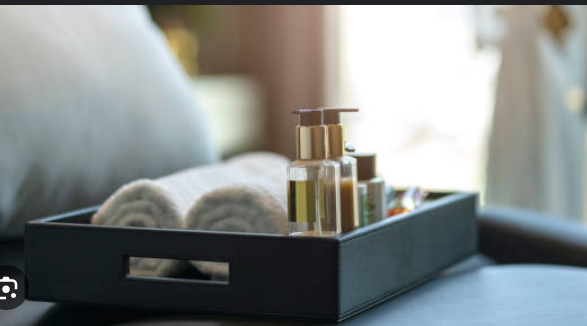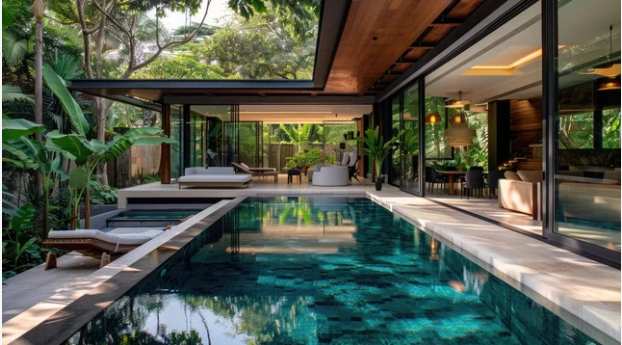Hotel amenities are essential in creating memorable experiences for guests. From luxury toiletries to comfortable in-room essentials, these products contribute significantly to a hotel’s reputation. But how do manufacturers ensure that the quality of these amenities meets and exceeds expectations? Ensuring high-quality standards involves a combination of meticulous processes, strict adherence to industry regulations, and advanced technologies. Ensuring Quality in Hotel Amenities

Quality Control Processes
Raw Material Selection
The cornerstone of high-quality hotel amenities begins with selecting premium raw materials. Manufacturers focus on sourcing ingredients that are both safe and effective. For instance, the use of natural and eco-friendly components has gained momentum as guests become more conscious of sustainability.
Suppliers must provide certifications confirming that their materials meet global quality standards. Ingredients for items such as shampoos, lotions, and soaps should be free from harmful chemicals like parabens and sulfates.
Manufacturing Standards
Following the selection of high-grade materials, manufacturing processes must adhere to stringent quality protocols. Facilities are expected to comply with Good Manufacturing Practices (GMP), which set the benchmark for cleanliness, safety, and precision.
These practices include maintaining a controlled environment to prevent contamination and ensuring that machinery is calibrated correctly for uniform production. Consistency in production is vital, as any deviation can lead to substandard products that fail to meet guest expectations.
Testing and Certifications
Compliance with Health and Safety Regulations
Hotel amenities must meet both local and international safety standards. Regulations such as those set by the FDA (Food and Drug Administration) or EU Cosmetic Regulation (EC 1223/2009) require manufacturers to submit products for rigorous testing. These tests ensure that the products are safe for use on human skin and free from allergens and toxins.
The entire process, from the initial design of the product to final approval, involves thorough documentation. This step ensures that every ingredient and production phase meets specific legal requirements.
Quality Assurance Testing
Before amenities reach hotels, they undergo various quality checks. This phase often involves physical and chemical tests to verify properties such as texture, scent, and shelf life. Advanced techniques, including High-Performance Liquid Chromatography (HPLC) and microbiological testing, are employed to detect any impurities or harmful microorganisms.
Another integral part of this phase is sensory evaluation. Teams test products for fragrance, feel, and overall user experience, simulating how hotel guests would interact with the products. If a batch fails quality assurance tests, it is discarded or reformulated until it meets stringent quality benchmarks.
Partnerships and Trustworthy Suppliers
Criteria for Partnering with Reliable Suppliers
Establishing partnerships with trusted suppliers is crucial for quality assurance. Suppliers who demonstrate transparency, ethical practices, and environmental responsibility are preferred. Manufacturers may audit suppliers regularly to verify that raw materials meet predefined standards.
Long-term partnerships provide stability in the supply chain, ensuring that there is no compromise in quality due to sudden changes in ingredient sources.
Ensuring Long-term Quality
Maintaining consistent quality over time can be challenging. Manufacturers combat this by implementing continuous improvement protocols. Regular feedback from hotel chains and guests plays a significant role in updating quality standards. Additionally, audits and reviews ensure that quality remains intact, adapting to new technologies and market expectations.
Technological Advancements
Innovations in Manufacturing
The incorporation of technology in the production process enhances efficiency and precision. Automated machinery and robotics can perform tasks such as blending and filling with minimal human error. This precision ensures that each unit of product is consistent in quality and volume.
AI and Automation in Quality Checks
AI-powered systems offer an additional layer of scrutiny that human inspectors may miss. For instance, computer vision technology can scan products for defects like incorrect packaging or missing labels. These automated systems can work faster than human counterparts, ensuring that only flawless products are distributed.
AI can also analyze data from past batches to predict and prevent potential issues in future production cycles. This predictive analysis helps in maintaining quality consistency across the board.
Conclusion: The Future of Quality Assurance in Hotel Amenities
Ensuring the quality of hotel amenities involves a complex blend of raw material selection, strict adherence to manufacturing standards, and advanced testing methods. With the rise of AI and automation, the future of quality assurance looks promising, offering even more reliability and efficiency. This multi-faceted approach ensures that hotel guests receive amenities that enhance their stay, fostering customer satisfaction and brand loyalty.

FAQs
How do manufacturers select materials for hotel amenities? Manufacturers prioritize high-quality, eco-friendly, and safe ingredients, supported by certifications and supplier audits.
What safety regulations must hotel amenities meet? They must comply with local and international standards, such as the FDA and EU Cosmetic Regulation, ensuring they are safe and free from harmful substances.
Why is continuous quality monitoring necessary? Continuous quality checks help adapt to new industry standards and maintain consistency, ensuring that guests receive premium amenities.
How do technological advancements assist in quality assurance? AI and automation streamline manufacturing and quality checks, increasing accuracy and reducing human error.
What tests are essential before hotel amenities are distributed? Chemical, physical, and microbiological tests, alongside sensory evaluations, are crucial for ensuring safety and guest satisfaction.
What role do suppliers play in maintaining quality? Reliable suppliers provide certified, high-grade raw materials, supporting consistent quality throughout the production process.
